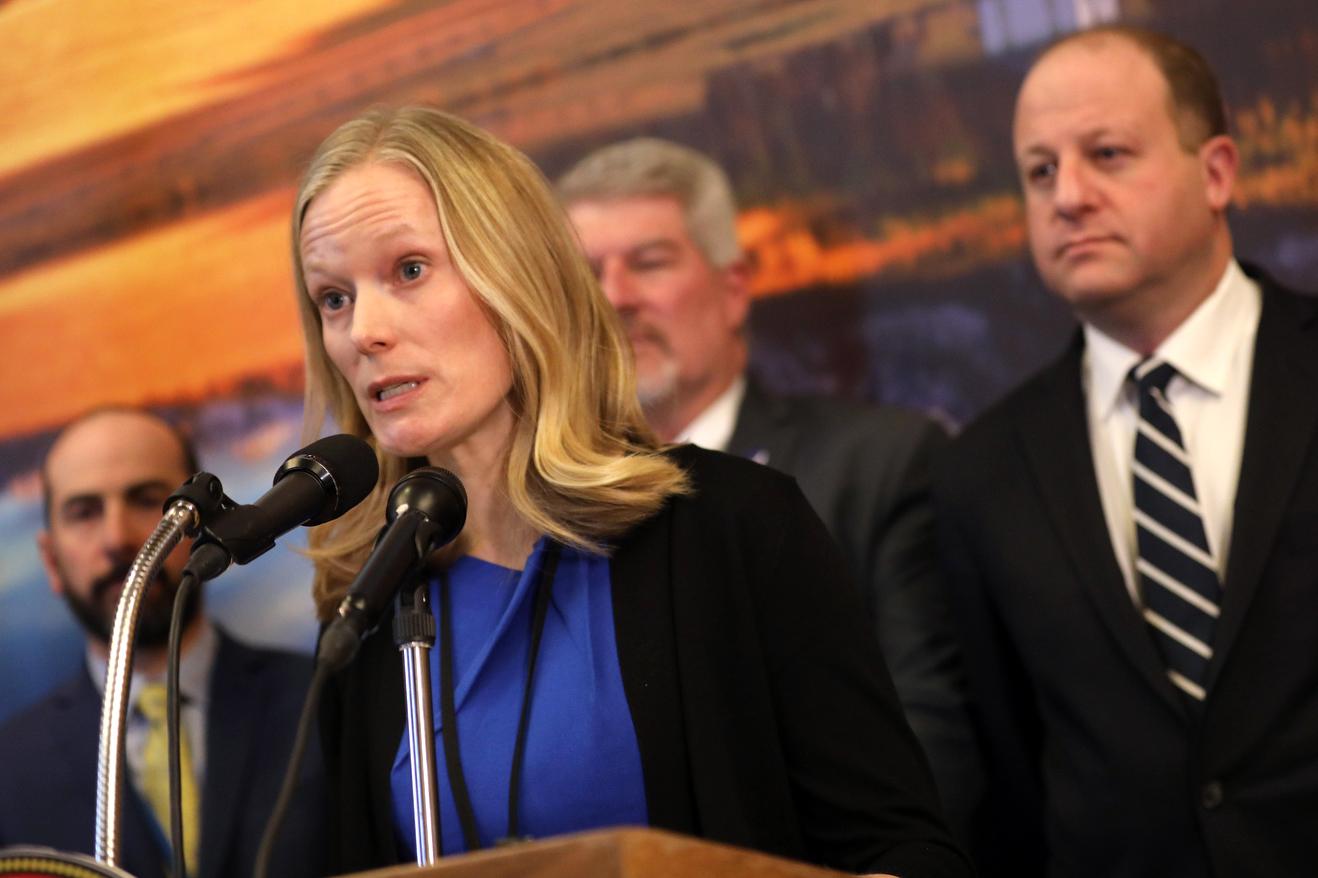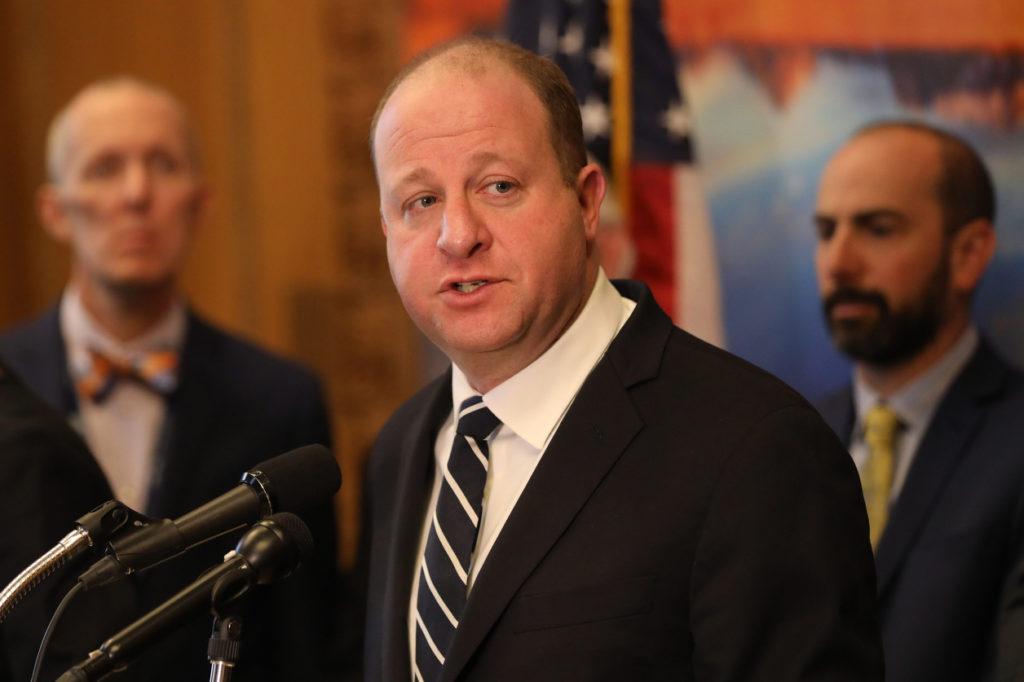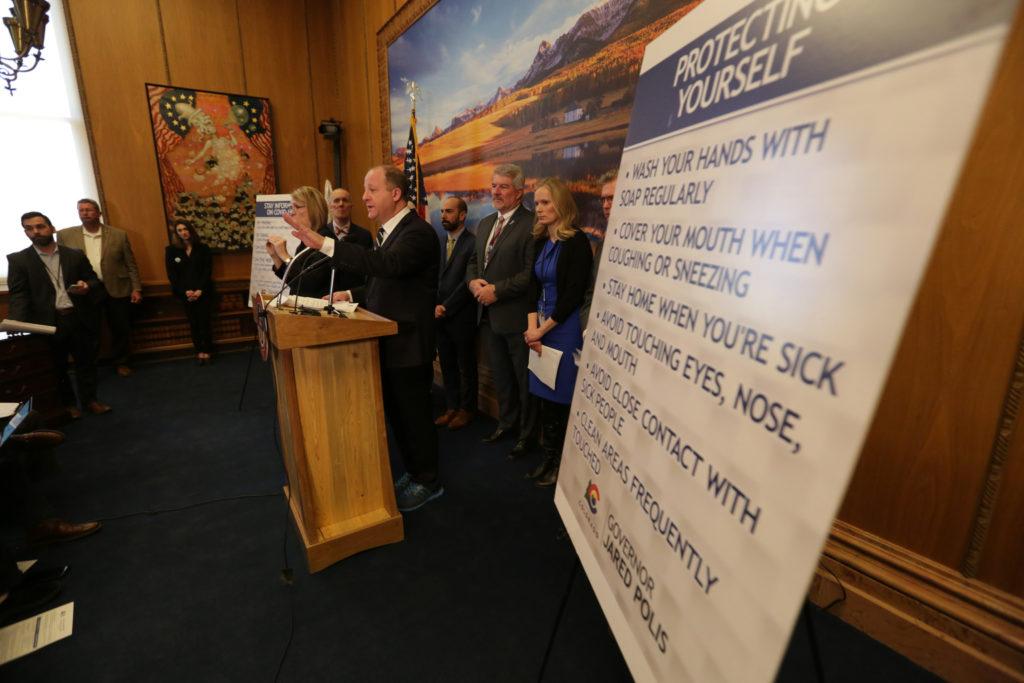
Updated Thursday, 3/5 4:42 p.m.
Standing before several members of a team of state public health and emergency officials at the state Capitol, Democratic Gov. Jared Polis said his “top priority as governor is keeping our state safe.”
To that end, Colorado is elevating its emergency readiness to its second-highest level due to concerns about the spread of coronavirus, Polis announced Tuesday. The virus has sickened more than 100 people in the U.S.
However, state health officials warned Tuesday that it was possible there were already mild cases in the state and encouraged people to plan to stay home if needed.
At least nine people in the U.S. died, all in Washington state. Cases have also been reported in California, as well as Florida and northeastern states.
Polis said the state’s comprehensive statewide response to the virus included a coordinated effort that involves 10 agencies. His administration will set up an incident command to manage the state efforts for the fifth time since he became governor in 2019. (The others were for natural disasters).

Part of the plan directs agencies to identify staff who can be diverted from their regular duties if need be.
A 19-member committee expert emergency epidemic response committee will be available to advise the governor. It includes experts in disease and public safety as well as the leaders of the state board of health, state medical society and the Colorado Hospital Association.
The state health department will coordinate with the health care system to prepare for cases in Colorado and actively monitor the situation through the state lab, which is providing seven-day-a-week testing according to Jill Hunsaker Ryan, executive director of the Colorado Department of Public Health and Environment.
Though Colorado doesn’t have a reported case she said, “we are seeing increasing evidence of community spread in other states.” That means there are cases of infected individuals who did not have relevant travel history or exposure to another known patient with COVID-19.
She said it’s possible that mild cases are going undetected by the medical system and spreading to others. Both Ryan and the governor urged residents to take preventive steps like washing hands, staying home when sick or keeping children home if they get sick.
About 80 percent of people who get COVID-19 have only mild symptoms, and may not know they have it. Children appear to be at low risk. Relatively few become infected and most present with more mild symptoms. The disease has affected older adults much more. Chinese researchers have found a mortality rate of around 2.3 percent in Wuhan and affected provinces.
Under the state’s disaster emergency act, Polis would have a wide range of options to protect the public “and if needed, we won't hesitate to use them if the situation worsens and if these powers are warranted.”
Polis said under a declared state of emergency the governor has the power to take more dramatic steps, like prohibiting mass gatherings.
“If the condition elevates to a level where we need to take more decisive action, we're prepared to do that,” he said while stressing “this is not a declared state of emergency.”
Polis sidestepped a question about whether he’s been satisfied with the federal government’s response. He noted the state had upgraded its testing capacity at the state lab. “We hope that if needed, that can be increased even further,” Polis said while noting he discussed emergency response with Vice President Mike Pence Monday.

The governor said he requested funding from the Trump administration for a staffing surge. That means lab personnel, epidemiologists, emergency responders, and others to expand the state’s capacity to respond should there be an outbreak of cases in Colorado.
He said the state had more than 650,000 protective masks and a plan “to deploy if and when needed.” He warned against schemes for people to buy them en masse, saying the masks are intended for medical workers or those involved with transporting or feeding ill patients.
Polis said his administration will also take a number of other steps to stay on top potential impacts of the virus. That includes providing information to local health departments and providers, making sure providers know how to safely manage and collect specimens for testing from people possibly infected, and working to manage potential disruptions in the supply chain, including medications.
The state’s epidemiologist Dr. Rachel Herlihy outlined the steps to take should a positive case be confirmed in Colorado. She said after a positive result from the lab, the governor, local public health departments and then the press would be notified as soon as possible. Then the health department would determine if the patient exposed others.
For example, if they went to a hospital or public space, the state would notify people who have been exposed “to the best of our ability based on their level of exposure.” Some of those people could be quarantined and monitored for the development of symptoms. “Our goal after getting a confirmed case is the same as always to minimize the spread,” Herlihy said.









